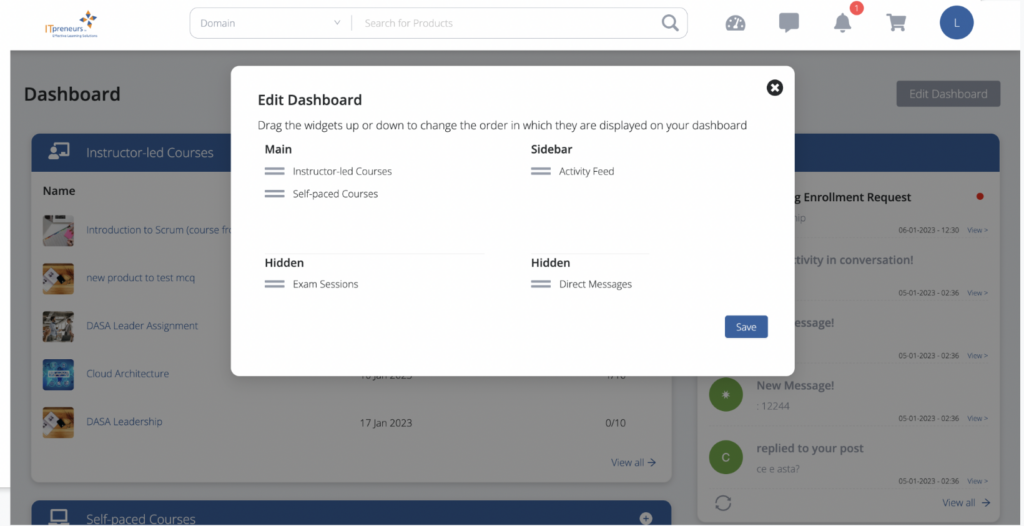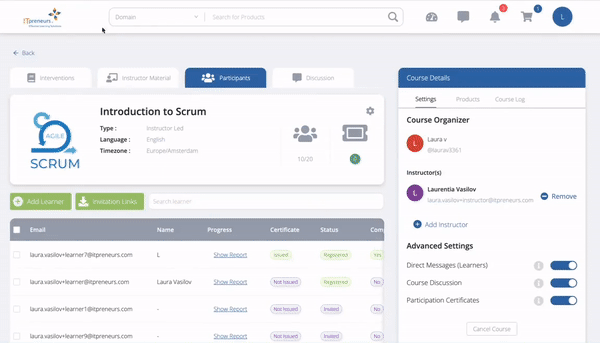How hard can managing a project really be? That depends on one’s perspective. There is only one thing we all agree upon: the only difficulty in managing a project is… managing it. Anyone with a minimal background in project management (PM) methodologies and frameworks can state at least some aspects that are crucial when working in projects: scope, time, cost, quality, resources, stakeholders, risk. Moreover, with some alterations, all methodologies include steps or phases that a project goes through from its beginning until its closure.
Figure 1: The 7 Processes of the PRINCE2 Methodology
PRINCE2 and PMP exam preparation training are quite popular, depending on which region you are in the world or which industry you are working in. But what about projects that are difficult to manage in such a linear way? What about software projects?
Get Agile
With the paper “Managing the Development of Large Software Systems”, published by Dr. Winston Royce, the concept of the “waterfall” methodology was criticized as the best way to manage software projects. And what did Dr. Royce propose instead? But of course…the Agile methodology. Today, Agile software development does not refer to a single methodology but to a group of development methods based on iterative and incremental development. Some of the methods are not very well-known, such as Lean, Scrum, XP (Extreme Programming), and some are less popular like Kanban BDD (Behavior-Driven Development), and TDD (Test Driven Development).
There is an interesting video that will help you understand what Agile is and what Agile is not.
The good news is that all these Agile methodologies, same as the traditional PM methodologies, aim at adding value for the end customer and driving successful projects. The bad news is that if you are a training company that would like to offer Agile training, you have a number of important decisions to take. The reason being that, contrary to traditional PM methodologies where the options are less complicated (PMP, PRINCE2, IPMA, etc.), the world of Agile certifications is much broader.
| Provider | Courses | Industry | Based on | Principle |
|---|---|---|---|---|
| APM Group | AgilePM Foundation, AgilePM Practitioner | Industry agnostic | DSDM consortium | Agile Manifesto |
| APM Group | Lean IT Foundation | Software | – | – |
| PMI | PMI ACP | Industry agnostic | Generic | Agile Manifesto |
| Scrum Alliance | Certified ScrumMaster | Software | Scrum Atlas | Agile Manifesto |
| Scrum.org | Certified ScrumMaster | Software | Scrum Guide | Agile Manifesto |
| EXIN | AgileScrum Foundation, Lean IT Foundation | Industry agnostic | Generic | Agile Manifesto |
| BCS | Agile Foundation | Industry agnostic | Generic | Agile Manifesto |
And believe me… there are many more. As you can see, they are all directly or indirectly based on the Agile Manifesto. Whether you are a training company or a trainer you need to make sure that you understand:
The existence of different portfolios
- AgilePM
- Scrum Master
- PMI ACP
- Lean IT
- Other ?
The audience that you are targeting, by answering the following questions
- Who are my customers?
- What industries do they come from?
- What do they need?
The investment required from your side
- How easy/challenging is it to become an instructor?
- What is the instructor availability in the market?
Other issues like
- What other courses do you offer that could be related or combined with an Agile course?
- What is your company’s short term and long term strategy?
Whatever your decision might be, Agile and Agile training is in itself a long and exciting journey. By its very nature, Agile fundamentally questions the linear way that most of us are used to doing things. It questions life itself: we assume that, in order to wake up, one has to first fall asleep and in order to travel to a foreign country one has to first purchase an airplane ticket.
But life is not always that simple. And when something cannot be characterized as either good or bad, it’s simply because it is not…. it can just be Agile.
More information on the Agile courses is available in the ITpreneurs Course Catalog.
Need more information? Please contact ITpreneurs.
About the author

Passionate, pragmatic and enthusiastic customer operations leader with a focus on:
Boosting customer satisfaction in complex tech environments
Enabling and fostering scale through operations growth strategies and organisational scale
Leading customer-facing operational teams to success
Technology B2B business development and customer engagement
Development and implementation of systems and procedures
Logistics Management
Recruitment
Driving KPIs across quality, inventory, and costs to optimize growth and margin
Building and continuously improving robust operational processes to support the organizational customer strategy
Executive MBA degree holder with a background in operations and Industrial Engineering.
Related Courseware
Sorry, we couldn't find any posts. Please try a different search.



